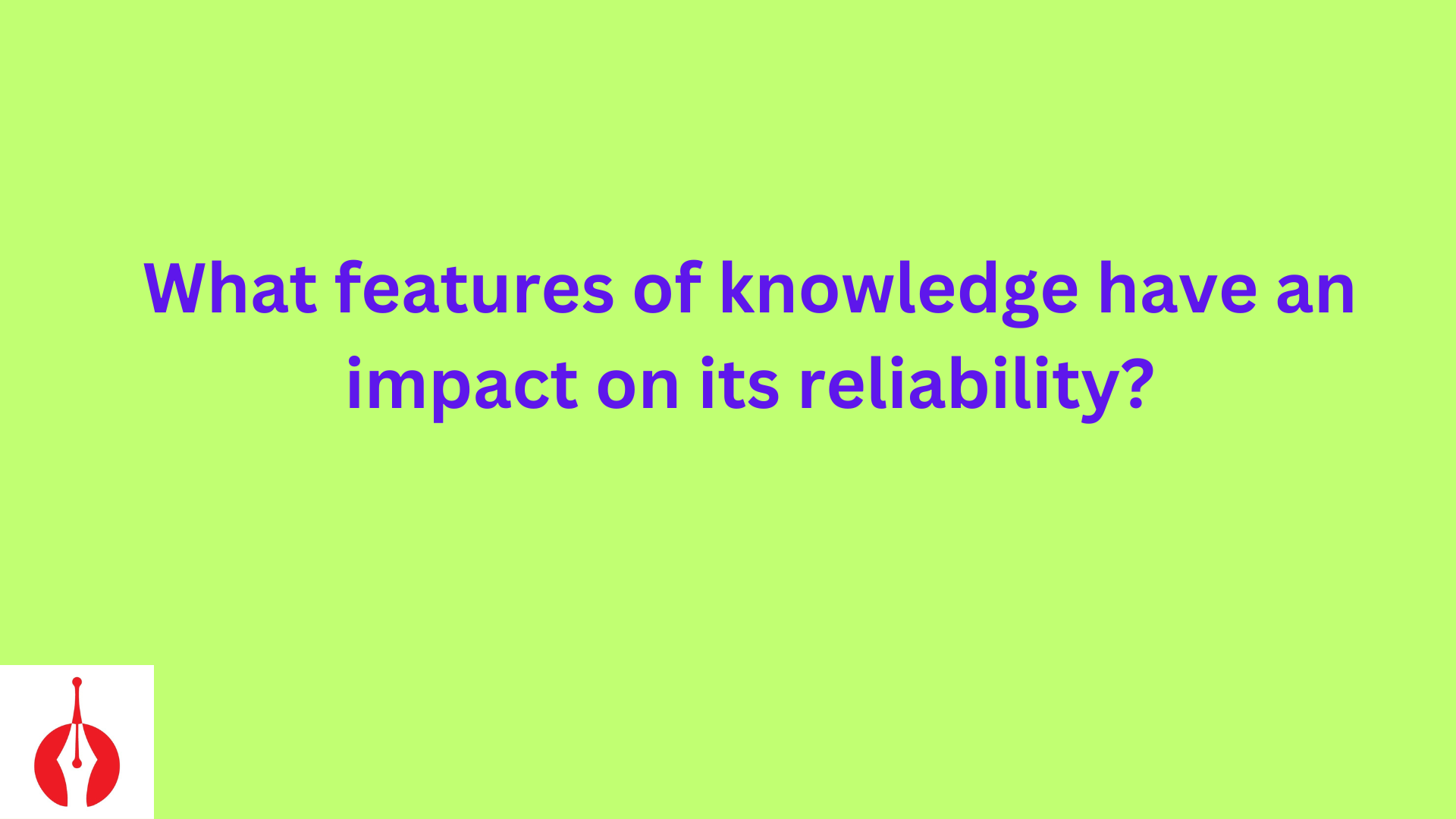What features of knowledge have an impact on its reliability?
Reliability means “repeatability” or “consistency”. In research, it is considered reliable if it would give us the same result over and over again. Assumption here is there is no change in what we are measuring.
- There are a number of features that impact this reliability. Starting with Bias and objectivity. Bias is a preference towards a certain idea, group or concept that influences our decisions or judgement. It can play a major role in our day to day interactions and relationships, thus influencing our behaviour, attitude and thoughts towards others. Therefore, it is important that we compare a number of sources with varied perspectives in order to reduce this bias and make an objective understanding of any problem.
- Features like recent information is crucial particularly in the field of sciences where past knowledge could have been no more or less applicable. Also, we need to verify the source from where the knowledge is sought. Some of the sources have been peer reviewed like academic scholarly or research papers and so this seems to be more credible than personal blogs. Reputable and established organizations, institutions or publishers are more likely to produce reliable information. Peer review involves experts in the that particular field who are critically evaluating the results, the method and the conclusion. A consensus from these experts lends more credibility for a holistic comprehension.
- While using any data, features like the methodology used to collect the data is very important. Normally larger the representative sample size, more reliable the data could be. In our schools, we look at citations in a research work to check the reliability.
Examples: Features of knowledge that have an impact on its reliability.
Let us understand with 2 examples of how these features affect the reliability of knowledge- COVID 19 and Unemployment data.
- For COVID-19 the knowledge that we got was from sources like government distributed data or from famous hospital or health organizations. During those pandemic years, timely data on day to day basis was very important to understand the situation globally and then make required decisions. Therefore updated information was crucial. This data that was acquired then was aligned with global patterns to observe the credibility. There were number of media channels and news reports that had reported data whether biased or unbiased and it had an impact on the public audience to a major extent. It is not certain whether there were transparent methodologies of data collection, testing and any sort of reporting that contributed to these COVID -19 statistics. Development of vaccines during this time along with other published research studies have undergone peer review discussions and validation with respect to the findings.
- In the similar way, when we look at unemployment data example, our source of information is the NSO- National Statistical Office which is a government agency and so could be considered reliable. This data is collected in order to improve the societal situation with respect to jobs and so it is important that there must not delays in such reporting as it will impact an economic situation of the country. If this data is checked with any other independent research organization this cross verification helps. There could be perceived biasness while collecting or reporting this data in case of the laziness or confusion of the collector or even any political interference. If these methodologies are transparent it will ensure some accuracy of the statistics.
Examples across the continent:
- Globally there are few examples like Global climate change data, International Human Rights, Global education rankings, Global economic indicators. If there are any queries regarding the data collection methods, interpretations and possible biases, it can influence the perception of the reliability of the data collected in all the cases. It is important that one thinks critically and understand the context while evaluating this knowledge’s reliability. Culture and politics do contribute while assessing the reliability of this knowledge gathered.
#theoryofknowledge
#prompt3
#3rdeyetutor

